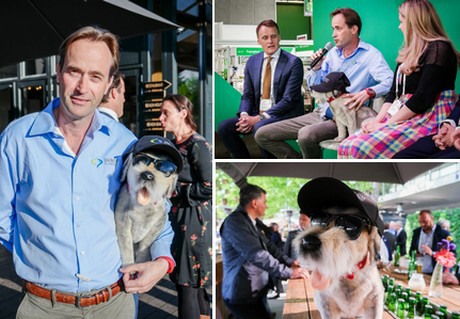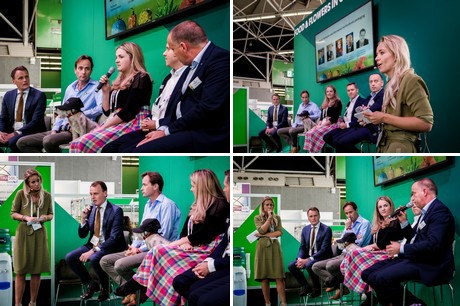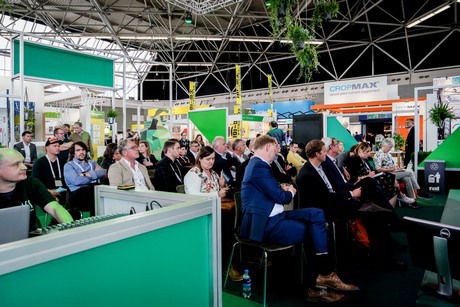What do dogs and plastic have in common? "People like dogs, but not stepping in their poop. But is it the dog's fault? No, it all comes down to the owner's behavior, and the same goes for plastic; it is not the material itself that pollutes, but the people who don't handle it properly", Jan Willem Wieringa of packaging company Desch Plantpak said in an interview in the Desch magazine. At a panel discussion named ‘Plastic fantastic and alternative horticultural packaging’ - held last Tuesday at the Greentech - several large parties and packaging companies covered this topic, and Wieringa, one of the speakers, brought his mascot 'Recy' to support his story. Now even after the panel discussion, this dog really sparks interest and discussion.

Jan Willem Wieringa with his dog (mascot) Recy
 In total, there were five speakers: Shaun Herdsman from Modiform, Yme Pasma from Royal FloraHolland, Joan Hanegraaf from Oerlemans Plastic, and Natalie Porter from Porters Fuchsias. Moderator Jeannette den Boer led the panel over more than an hour through a discussion.
In total, there were five speakers: Shaun Herdsman from Modiform, Yme Pasma from Royal FloraHolland, Joan Hanegraaf from Oerlemans Plastic, and Natalie Porter from Porters Fuchsias. Moderator Jeannette den Boer led the panel over more than an hour through a discussion.
More and better recycling
Plastic pollution is a huge problem and everyone is reacting. "The problem is mainly created in Asia, but results in changes all over the world, with certain plastic products being forbidden", explains Wieringa. But coming back to the dog-plastic comparison, we do not like stepping in the poop of the dogs; so to solve the problem, do we need to kill all dogs then? No, it is all about education of not only the users but the entire industry. Instead of killing the plastic industry, we need to invest in recycling. The products from Desch, for example, are all made of recycled products. And they are even investing in making them better detectable in recycling.
Of course, there are alternatives arising, but plastic should not be seen as the bad guy, Wieringa stresses. "Plastic is fantastic, as long as you don't throw it away."

Conclusion: More cooperation
During the discussion, they came to the conclusion that the problem is too big to be solved by one company, and the final result is: 'More cooperation through the whole chain is needed'. "People are committed to do the right thing, but are confused about what the right thing is. A lot of recycling is being done, but a lot that is being done is done differently. All links in the chain need to cooperate and one line needs to be drawn regarding recycling, preferably European or worldwide."

For more information
Desch Plantpak B.V.
www.desch-plantpak.com
